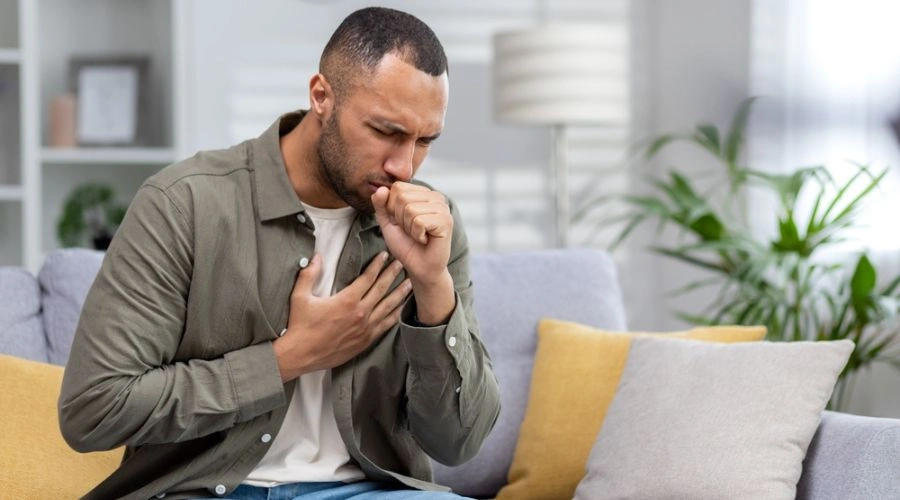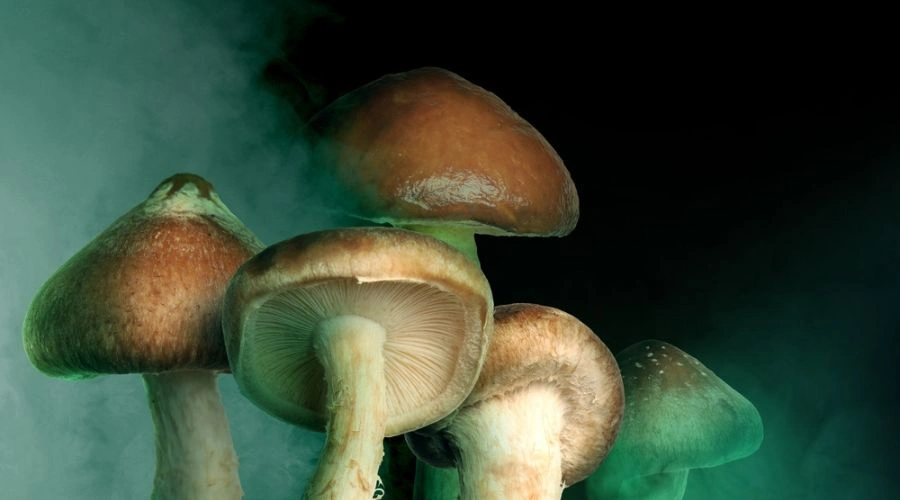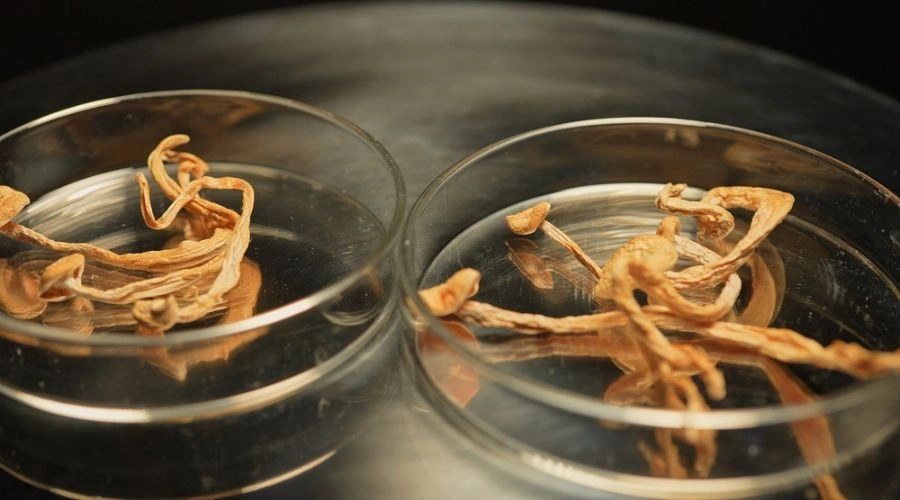Understanding the Risks and Side Effects of Smoking Shrooms
Smoking shrooms isn’t as common as brewing mushroom tea or eating fungus raw. But that doesn’t mean that your drug abuse will fly under the radar. Negative consequences associated with smoking magic mushrooms impact both physical and mental health.
What are the most severe symptoms you’ll see from the harmful toxins in mushrooms?
Thick smoke makes it harder for your lungs to function properly. Because the shrooms aren’t as heat-stable, you also won’t experience the same psychedelic effects, but they can lead to mental health issues like increased anxiety. Be cautious of consuming mold spores. Monitor your heart health.
Walking away from a bad trip is easier with professional help. Ingrained Recovery supports our clients every step of the way toward sobriety with services ranging from medical detox to residential care. All of our programs are private and intensive.
If you’ve been smoking shrooms, here’s what you should know to take charge of your health now.
Get Effective Detox and Rehab Options
Find Help At Ingrained Recovery
The Risks of Smoking Magic Mushrooms
Mushrooms eaten raw have the strongest psychoactive effects, even if they don’t have a taste that most people relish. If you don’t want to taste the fungus, brewing tea with a splash of lemon juice is always available to mask the unpleasant flavor. You can also toss it in an alcoholic cocktail, which can compound the effects of psilocybin.
However, some people prefer the experience of smoking it. For some, this makes it easier to combine the effects of psilocybin mushrooms with the effects of other drugs like weed. This will prove crucial when you learn that your trip is diminished by smoking shrooms.
Deciding to smoke shrooms isn’t without risk. Consider this list of adverse effects before you roll up that powder and set it aflame.
Lung Issues Due to Intense Smoke

Smoking anything should make you wary of its effects on your lungs. From cigarettes to joints, your lungs were never intended to hold the smoke or particles of the drugs you consume. Shrooms aren’t designed for smoking, and it shows when you start to inhale the smoke. It’s usually thick, like a black cloud, and hard for the lungs to process.
The result is immediate discomfort and long-term issues with the health of your lungs that may require future medical attention.
Research indicates that cancer risks aren’t necessarily associated with shrooms, but lung cancer is the one exception. There’s a small positive association here, so consider a cancer screening if you’ve been smoking shrooms frequently for an extended period.
Fewer Psychedelic Effects Compared to Being Ingested Orally
Have you ever wondered whether you would still take shrooms if it didn’t yield a positive experience? You might want to consider the answer to this question if you’re thinking about smoking them. Most people eat shrooms because of their psychedelic and hallucinogenic effects and their alterations of mood and perceptions.
If this is why you take substances, you might want to find a new way to consume shrooms.
Because they aren’t heat-stable, smoking eliminates almost all of the psychedelic effects of your magic mushrooms. It isn’t as simple as chalking it all up to a bad trip. This also puts you at risk for an overdose if you continue to smoke more and more in search of the high that’s never going to come.
The very real consequences of smoking shrooms can include psychosis, paranoia, and panic attacks that you may have never experienced before. Mental health issues like depression can also surface in the aftermath of an overdose.
Get Accredited Treatment Programs
Find Help At Ingrained Recovery
Increased Odds of Developing Mental Health Disorders
Maybe the idea of going to rehab feels like it’s a bit of a reach based on your current drug abuse. You may not meet the criteria for a substance use disorder, but rehab could also offer a safe place to land when you develop a mental health condition–something that’s common with prolonged use of magic mushrooms.
At first, it might feel like a bad trip with increased anxiety and panic attacks that seem to come out of the blue. Many people experience these symptoms for the first time when taking shrooms and never had any issues with mental health before. They might even be compounded by paranoia, delusions, or confusion.
The good news is that most symptoms fade in a matter of hours as the shrooms clear your system. But new research is showing that anxiety can linger. Clinicians are at a disadvantage here, having to tease out whether you have an anxiety disorder or whether it’s due to your abuse of shrooms.
Inhaling Mold Spores While Smoking Shrooms

Do you know where mushrooms come from? Some people don’t think about the implications of the wet conditions in which this fungus grows. Not only does it set the stage for magic mushrooms to bloom, but it also creates a breeding ground for mold spores.
Your naked eye might be unable to identify tiny spores, especially if it has already been ground into a fine powder. But your lungs will certainly notice the difference!
When you abuse shrooms, you generally have a weakened immune system, but that goes to a new level if the shrooms you take happen to have mold on them. You’ll be at risk of lung inflammation and long-term infections that you just can’t seem to shake–especially if you have a pre-existing or dormant mold allergy.
Seek medical help if you have lasting issues due to mold exposure. It could impact your entire body, and it isn’t something that you’ll want to take a risk on!
Issues with Cardiovascular Health
Your respiratory issues aren’t the only thing you should be concerned about when smoking shrooms. It isn’t about auditory hallucinations, stomach aches, or anxiety either. Cardiovascular health also takes a serious nosedive, as it can bear the brunt of your mushroom habit.
As we saw earlier, overdosing is common because the effects of smoking diminish the trip experienced. This is the real issue when it comes to thinking about your heart health.
Smoking magic mushrooms means that you’ll need to monitor blood pressure, take careful inventory of your nausea, and pay attention to variations in your heart rate continuously. Awareness of these signs and symptoms could just save your life.
Of course, quitting helps you avoid lasting damage to your blood vessels and improves cardio health.
Compounded Adverse Effects by Combining with Other Substances
In addiction treatment programs, we often see people taking dried shrooms along with other drugs or alcohol. Smoking mushrooms doesn’t give you that high, so you might look to compound it with more drugs like marijuana or alcohol. Unfortunately, this means you’re also getting double the trouble.
Especially if you’re smoking shrooms with marijuana, increased inflammation in the lung tissue is worth considering. Not to mention, your mental health condition might rapidly deteriorate with increased drug use.
Risky behaviors and impulsive decisions preside when you overdo it with drugs and alcohol, no matter which substances you use. Even though psychedelic experiences aren’t common when smoking, you should be aware of how it impacts you and the people you love.
Should You Get Help for Smoking Shrooms?

When does your mushroom consumption cross the line into dangerous territory? Most people notice that they’re smoking psilocybin mushrooms far more than they used to in search of that high that may never come for them. Substance abuse is always serious, even without any of the other side effects in the above sections.
Maybe you never have a bad trip or a nonexistent high, but you depend on shrooms to get through the day.
The first couple of days without psilocybin mushrooms are the most challenging for your sobriety. On the bright side, physical side effects of withdrawal aren’t as common as mental and emotional ones. In the first 48 hours, you might feel depressed and anxious and even develop hallucinations.
Cravings are also going to be intense in the early days, which is why you should seek a medical detox. At Ingrained Recovery, we can offer you assistance as you come down from shrooms and make you a bit more comfortable while you adjust to life sober.
Up To 100% of Rehab Covered By Insurance
Find Help At Ingrained Recovery
Get Comprehensive Care at Ingrained Recovery
A sober life can be just as beautiful, even if it does feel harder to face daily realities without the aid of shrooms and other drugs. Ingrained Recovery understands the challenges and obstacles that you’ll have to face when you stop taking dried shrooms for good. That’s why we offer 24/7 care in a medical detox and residential program.
We want you to be comfortable, so we offer a luxurious experience with the privacy afforded by a remote location in the Georgia hills. Explore all fifty acres of our property while you participate in a variety of therapies designed to help you develop coping skills. Our property even allows us to offer equine-assisted therapy for increased confidence.
When you’re ready, our enrollment team can answer your questions and verify your insurance benefits to facilitate your care at our comprehensive treatment center. Don’t wait another day to get the help you need for smoking shrooms!
References
- Lee, D. H., Yang, M., Keum, N., Giovannucci, E. L., Sun, Q., & Chavarro, J. E. (2019). Mushroom Consumption and Risk of Total and Site-Specific Cancer in Two Large U.S. Prospective Cohorts. Cancer prevention research (Philadelphia, Pa.), 12(8), 517–526.
- Gotvaldová, K., Hájková, K., Borovička, J., Jurok, R., Cihlářová, P., & Kuchař, M. (2021). Stability of psilocybin and its four analogs in the biomass of the psychotropic mushroom Psilocybe cubensis. Drug testing and analysis, 13(2), 439–446.
- Harari, R., Chatterjee, I., Getselter, D., & Elliott, E. (2024). Psilocybin induces acute anxiety and changes in amygdalar phosphopeptides independently from the 5-HT2A receptor. iScience, 27(5), 109686.
- Barrett, F. S., Doss, M. K., Sepeda, N. D., Pekar, J. J., & Griffiths, R. R. (2020). Emotions and brain function are altered up to one month after a single high dose of psilocybin. Scientific reports, 10(1), 2214.
- van Amsterdam, J., Opperhuizen, A., & van den Brink, W. (2011). Harm potential of magic mushroom use: a review. Regulatory toxicology and pharmacology : RTP, 59(3), 423–429.

